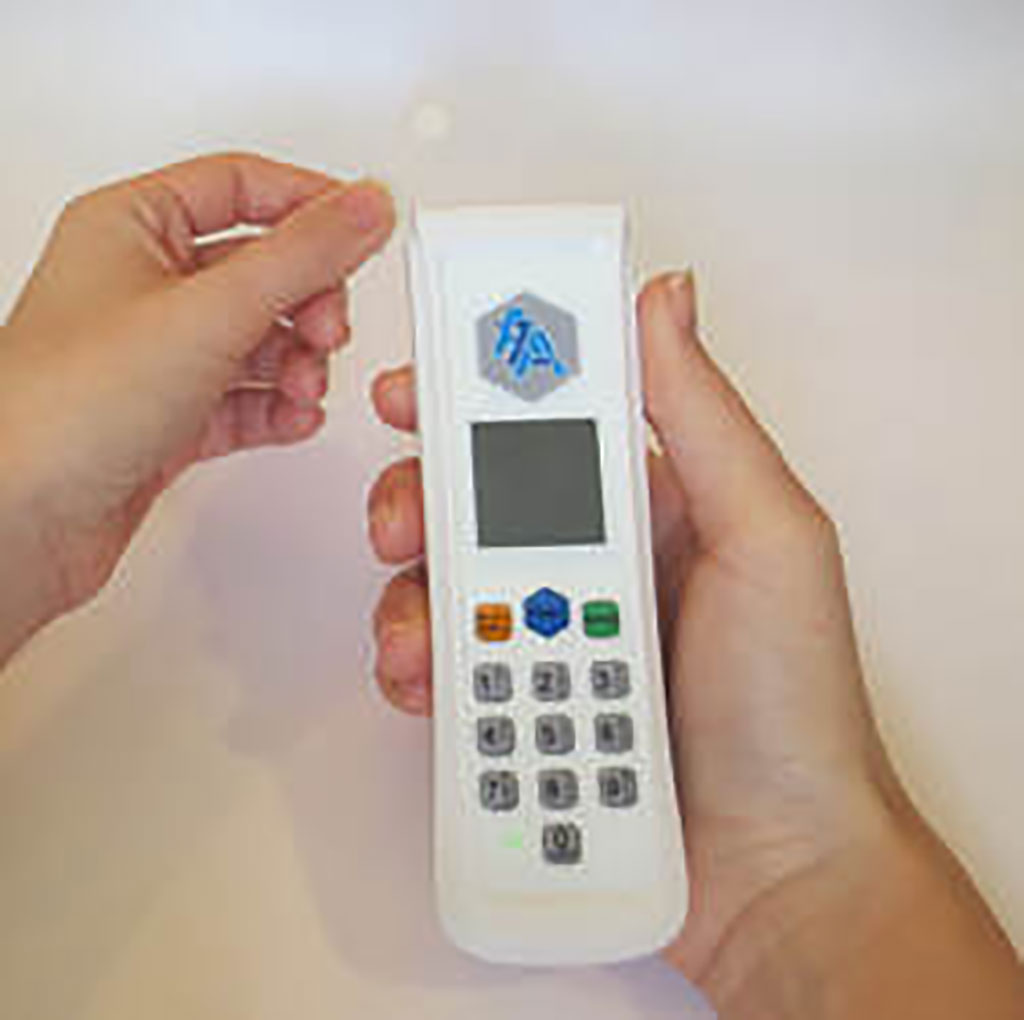Rapid POC Blood Ammonia Detector Could Dramatically Decrease Processing Times from Hours to Minutes
Posted on 14 Mar 2022
Hyperammonemia (elevated blood ammonia) frequently occurs secondary to organic acidemia and is responsible for a large portion of brain damage and death in these patients. Timely intervention to reduce ammonia levels is essential to improve neurodevelopmental outcomes, but diagnosing hyperammonemic infants before an acute crisis is extremely challenging with the standard clinical ammonia test which can take hours. A new point-of-care ammonia testing device works within minutes using just a drop of blood from an earlobe or finger prick, similar to how a glucometer measures blood sugar.
Aza Technology Inc. has developed a Rapid Ammonia Monitoring Device (AMD) intended for the quantitative determination of ammonia in whole blood, which enables the early detection of hyperammonemia that is critical to prevent irreversible neurological damage, coma, and death. The AMD can be lifesaving as it aims to dramatically decrease blood ammonia processing times from hours to minutes. The AMD has been granted Breakthrough Device designation from the Food and Drug Administration (FDA) for point-of-care measurement of ammonia for use in pediatric patients, including neonates as an aid in the diagnosis of inborn errors of metabolism. Aza Technology has hired Elbit Systems of America, LLC’s KMC Systems, Inc. (Merrimack, NH, USA) to gain FDA approval for its rapid blood ammonia detector for use in both adult and pediatric patients, as well as for manufacturing of the device and its consumables.

Hyperammonemia can strike at any age and timely diagnosis is limited by the current process and testing technology. The standard assay requires intravenous access for at least 1 mL of blood and must be performed in specialized clinical labs. Obtaining samples requires an extremely skilled phlebotomist since accurate values can only be obtained from draws performed without a tourniquet, and patient distress or a slow-flowing venipuncture can contribute to inaccuracies. Additionally, blood is unstable and releases ammonia over time, and therefore samples must be transported on ice and processed rapidly to avoid false elevations.
Aza Technology achieved a breakthrough with the recognition that ammonia could be measured in small volumes of whole blood simply by alkalizing the blood sample and monitoring the concentration of ammonia released from the sample. The company has developed a handheld device that produces accurate ammonia readings in less than a minute from a single drop of blood. The device is as easy to use as a blood glucose meter, and because it detects ammonia in the gas phase, typical interferents in the blood that can cause inaccurate readings with the conventional plasma ammonia test do not influence its results. Furthermore, the immediate readout eliminates complications from sample handling and permits the immediate evaluation of the patient’s status with respect to their ammonia treatment regimen.
“Between hospital and/or clinic visits, parents and caregivers are challenged to know ammonia levels and when their level would require immediate attention or action,” said Kathy Stagni, Executive Director of the Organic Acidemia Association. “The availability of a rapid point-of-care ammonia device, such as the AMD, with the capability of monitoring blood ammonia, will be a game-changer for the patient and the caregivers.”
Related Links:
KMC Systems, Inc.













